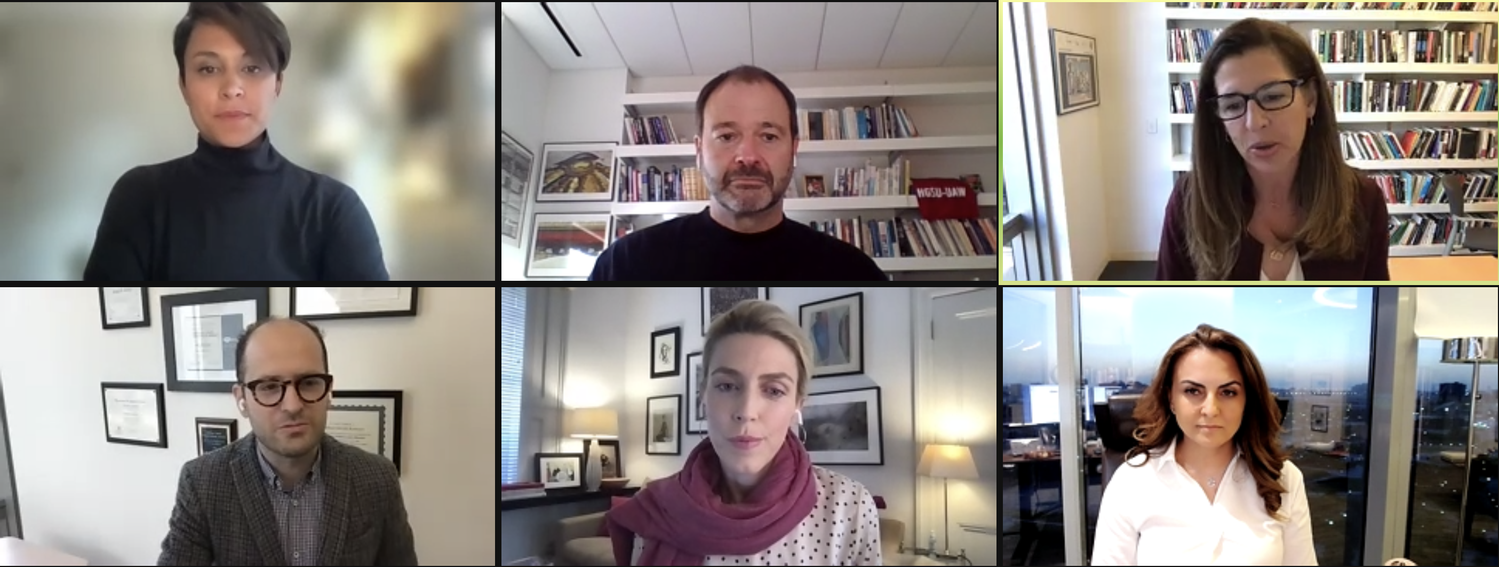
News
Cambridge Residents Slam Council Proposal to Delay Bike Lane Construction

News
‘Gender-Affirming Slay Fest’: Harvard College QSA Hosts Annual Queer Prom

News
‘Not Being Nerds’: Harvard Students Dance to Tinashe at Yardfest

News
Wrongful Death Trial Against CAMHS Employee Over 2015 Student Suicide To Begin Tuesday

News
Cornel West, Harvard Affiliates Call for University to Divest from ‘Israeli Apartheid’ at Rally
Scholars, Journalists Discuss U.S.-China Relations, Afghanistan Withdrawal on Virtual Panel

Harvard Government professors and international journalists discussed the future of American foreign policy in the Middle East during an online event hosted by the Weatherhead Center for International Affairs Thursday.
Moderated by Government professor Melani C. Cammett, the panel featured fellow Government professor Joshua D. Kertzer, Belfer Center Executive Director Natalie O. Colbert, CNN's chief international correspondent Clarissa Ward, the National Editor-in-Chief Mina Al-Oraibi, and Nabih Bulos, the Los Angeles Times' Middle East bureau chief.
The panelists spoke about the consequences of U.S. foreign policy in the Middle East following the withdrawal of U.S. troops in Afghanistan and how China has undermined the U.S.'s long-time dominance in the region.
“The U.S. is no longer the only act in town,” Ward said. “People are looking around for other options, and other state actors who might be able to offer investment assistance.”
The panel also said the U.S. government's poorly misjudged the speed of the Taliban’s takeover.
“I was asked a day later on television, ‘Oh, they're saying now 30 days until Kabul falls,’” Ward said. “I said, ‘That's ludicrous, that's not possible.’ Three days later, Kabul fell.”
“I was also guilty of not understanding how quickly things were unraveling, but I don't have security clearance,” she added
Al-Oraibi said that the withdrawal of U.S. troops has further strained the nation's relationship with its closest military partners.
“Another trend that was accelerated by what we witnessed in Afghanistan was this idea that there was a distancing between America and its NATO allies,” Al-Oraibi said. “They were stunned by how the United States had gone about this and really hadn’t conferred with their allies who had fought side by side with them for two decades.”
The panelists also discussed climate change policy in the Middle East.
According to Colbert, the U.S. can play a leadership role in the Middle East by helping nations pursue reductions in emissions and investments in new energy economies.
“The leaders of Israel, Saudi Arabia, and the [United Arab Emirates] were invited to President Biden's climate summit in April, and the UAE also hosted a climate dialogue in April, John Kerry attended,” she said.
“So you're seeing a lot of activity there that I do think suggests there's still a role for us to play on that topic as well, in the context of opportunities to stay engaged with the Middle East,” Colbert added.
In an interview after the event, Kertzer said the priorities of the U.S. public have largely shifted from the nation's foreign policy in the Middle East to issues at home.
“The United States spent trillions of dollars in Afghanistan and Iraq and it's unclear what they've got to show for it” Kertzer said. “In this sense, there is a less permissive political environment at home now than there would have been during the Clinton administration.”
“The domestic political calculus has also changed and this also affects what political leaders in Washington are going to be willing to spend political capital on,” he added.
Cammett, an academic, noted in a post-panel interview that she believes it is important to include journalists in discussions with academics.
“It is really good to be in dialogue with people that are witnessing the phenomena that we are writing about on the ground,” she said.
“I found that it was really valuable to see Professor Kertzer’s perspective on these questions about credibility and reputation and resolve and then have journalists on the ground tell us, ‘Well, here is what we see on these questions in the people we talk to,’” Cammett added.
Ward, the CNN correspondent, also said she believes it is essential to include journalists' perspectives in academic discussions.
“Often, what we want to believe is true about a certain place is not actually what things look like on the ground,” she said.
Want to keep up with breaking news? Subscribe to our email newsletter.
